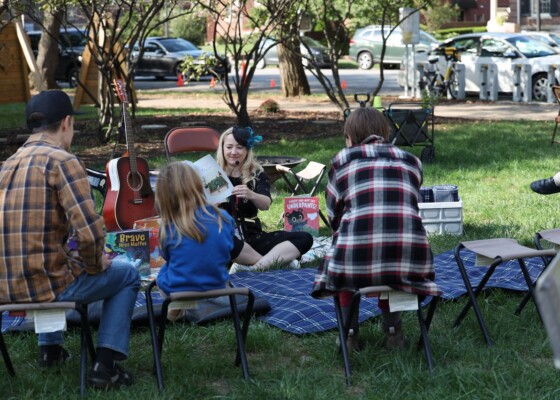Terminal
April 27, 2016for Robert Wrigley My father stands on the back stoop, smokes half a cigarette, butts it out and pockets what’s left. He’s done this for as long as I…
for Robert Wrigley
My father stands on the back stoop,
smokes half a cigarette, butts it out
and pockets what’s left. He’s done this
for as long as I can remember,
out of economy or some weird sense of health.
He coughs, spits, puts down a plate
of scraps for the runaway neighborhood cats—
Homeless cats he calls them.
I finish the dishes and watch
from the kitchen window. My mother has cancer
and lies on the couch in the den
doing crossword puzzles. My father
tries to put on a good front for my visit
but the whole house stiffens with her news.
“I’m so old I don’t even buy green bananas,”
he used to say, but not anymore.
My old man, who never asked for anything,
shoulders something new now that’s too heavy
to move, too fragile to set down,
and what can I do but be here for awhile—
help stack firewood, put away
the deck furniture—
as I wasn’t after ancient battles
over the length of my hair, the character
of my friends and that war
spreading toward us like a disease.
(I still think of young Sparky
dropped in his tracks along the Perfume River.)
And I’m not sure how we survived
those stupid days. Unbelievably
my mother calls from the den
for an eight-letter word meaning
point of departure or arrival.
I drain the sink, flick off the kitchen light
and for a moment all I see from the window
are a few stars tucked into the long night.
And then my father comes inside slapping his arms.
“It’s going to be a cold one,” he says.
—Matthew Graham (Vanderburgh County)
This poem is from A World Without End (River City Publishing, 2007).

Matthew Graham is the author of three books of poetry, New World Architecture (Galileo Press, 1985), 1946 (Galileo Press, 1991) and A World Without End (River City Publishing, 2007), and the recipient of awards and fellowships from the Academy of American Poets, the Indiana Arts Commission, Pushcart, and the Vermont Studio Center. He is a professor of English and Creative Writing at the University of Southern Indiana.
Poetry Prompt: A Convergence
Write about a time, perhaps of intense grief or happiness, when seemingly unrelated words, gestures, actions, or even memories took on double meaning. Be aware of very small gestures you might have originally overlooked but now, in retrospect, are significant. Include at least one quotation in your poem.
Indiana Humanities is celebrating National Poetry Month by sharing a poem and prompt every day in April. Indiana Poet Laureate Shari Wagner selected these poems and wrote the prompts.


